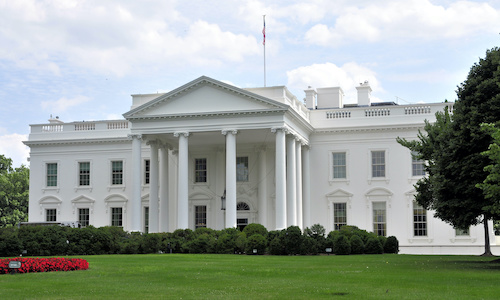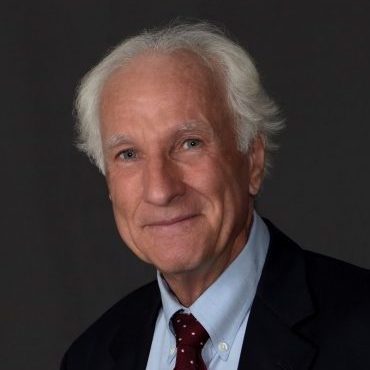“For many years, the critics have tried to turn Bayh-Dole into a weapon to use against the private sector by asserting that the law gives the government the right to set prices for successfully commercialized products. This is simply not true. Following that path would have immediate, disastrous consequences.”
 Almost two weeks after election day, it’s still not entirely certain who won (has there ever been a crazier year than 2020), but it appears increasingly likely that a new administration will take office in January. They are going to run smack into two overarching problems: how to gain control over the COVID-19 pandemic and how to reignite the U.S. economy. These problems are interrelated. We will only get out of this mess through American ingenuity and that’s already hard at work 24/7 developing promising solutions to protect public health, which releases the brake on the economy. So, here’s some advice: don’t listen to those who want to throttle down the engine driving that effort—don’t mess with the Bayh-Dole Act.
Almost two weeks after election day, it’s still not entirely certain who won (has there ever been a crazier year than 2020), but it appears increasingly likely that a new administration will take office in January. They are going to run smack into two overarching problems: how to gain control over the COVID-19 pandemic and how to reignite the U.S. economy. These problems are interrelated. We will only get out of this mess through American ingenuity and that’s already hard at work 24/7 developing promising solutions to protect public health, which releases the brake on the economy. So, here’s some advice: don’t listen to those who want to throttle down the engine driving that effort—don’t mess with the Bayh-Dole Act.
Meeting the Challenge
Kelly Anderson wrote a powerful article documenting the incredible efforts now underway to fight COVID-19. One paragraph in particular deserves repeating:
In the United States alone, over 860 clinical trials for COVID-19 related therapeutics and vaccines are taking place across all 50 states. Since March, the scientific community has taken 47 vaccine candidates from early-stage research to clinical evaluation, with 10 candidates in late-stage clinical trials. Equally promising, another 155 candidates are currently undergoing pre-clinical evaluation.
These numbers are astounding. While it seems we’ve been under the COVID cloud for years, it’s only been eight months since it started to really devastate the United States. In that short amount of time, we’ve mobilized the best minds in the public and private sectors to understand and respond to this suddenly emerging disease. We’re developing desperately needed drugs and vaccines at a record pace. That’s happening because the Bayh-Dole Act allows our companies, universities and federal laboratories to seamlessly work together, knowing that the rules for owning and managing inventions brought into or made under collaborative R&D partnerships are well established and dependable, regardless of which party is in power. That wasn’t the case before Bayh-Dole. In those bad old days companies were very reluctant to collaborate with the public sector. Fortunately, that’s long behind us.
A Path to Avoid
Unfortunately, there are always some cloud in just about every sky. For many years, the critics have tried to turn Bayh-Dole into a weapon to use against the private sector by asserting that the law gives the government the right to set prices for successfully commercialized products. As we’ve discussed many times before, this is simply not true. Following that path would have immediate, disastrous consequences for both our health and our economy.
Nevertheless, those advocating this point of view are hard at work trying to sell their misguided idea to the incoming Biden Administration. That would be the very worst thing a new President could do. Overnight, the bottom would fall out of our COVID-19 efforts. Companies that entered into partnerships with the public sector trusting assurances that the rug would not be pulled out from under them after they’ve invested billions of dollars and re-oriented their research priorities to combat the pandemic would realize that they’ve been played for suckers.
Rather than moving forwarding at maximum speed to develop desperately needed therapies, we’d see a series of lawsuits arguing (correctly) that any attempt by the government to march in under Bayh-Dole to set prices for a product on the market is illegal. But the damage would have been done. Our health and our wealth would take a devastating body blow just as both are most vulnerable. That’s not the way you want to start a new Administration.
The Lives Saved
Bayh-Dole 40 recently had a program celebrating the law’s birthday. We had a series of remarkable speakers, including 97-year old Senator Bob Dole (not only the namesake of the law but a decorated World War II combat veteran) who made eloquent statements on the impact of the Act over the last four decades. But two people really stood out for the powerful stories they told that directly relate to current circumstances.
One is Betsy de Parry, an inspiring cancer survivor. Her life was saved by a drug commercialized under Bayh-Dole. She had spoken ten years ago at the 30th anniversary celebration, where she shared the stage with Senator Birch Bayh, who died last year. Just as she began to step forward to talk, Betsy suddenly turned around, walked up to Senator Bayh and gave him a big hug, saying: “Without your law, I would not be alive today.” If there was a dry eye in the house, it wasn’t mine. This time, Betsy said Bayh-Dole was the most important law she knew and lawmakers should protect it as though their lives and those of their families literally depended on it, because someday they might. For many COVID-19 patients, that day is here.
The other speaker was Dr. Carol Mimura, Assistant Vice Chancellor for Intellectual Property & Industry Research Alliances, who told one of the most remarkable stories that I’ve ever heard. One day she was working in the licensing office at UC Berkeley when Dr. Jim Allison walked in announcing that he’d made a breakthrough using the body’s immune system to fight cancer. Luckily, Carol had worked with him before so despite the open skepticism of his peers and the criticism she received for using scarce campus resources to protect an invention with no immediate prospects of being licensed, she filed patents protecting the discovery.
That started an 18-year struggle to develop the technology. They faced obstacles all along the way, including at the Food and Drug Administration, because their approach was so different from anything seen before. After a series of setbacks, they finally found a licensee, but the technology bounced from company to company through a series of acquisitions, sublicenses and partnerships. Finally, Yervoy entered the market in 2011. Dr. Allison’s concept is now used to fight 15 types of cancer, including Hodgkin Lymphoma, colon cancer and breast cancer. In 2018, Dr. Jim Allison won the Nobel Prize.
Not many inventions get movies made about them, but here’s the movie trailer for Breakthrough, which tells this remarkable story, including showing Jim Allison playing a pretty mean harmonica on stage with Willie Nelson. It’s worth investing three minutes of your life to see.
Do No Harm
So, gentle reader, let’s pause here for just a moment. How many of us have the dedication to work from now until 2038 following a dream that all the “experts” say won’t work? Luckily, there are those like Jim Allison and Carol Mimura who will, and that’s what drives innovation. Bayh-Dole gives entrepreneurs like them the chance to succeed.
Every day of the year, we have three academic inventions turned into new products and three new startup companies formed because of Bayh-Dole. These are precisely the types of aggressive, small businesses which drive innovation forward. No other country in the world comes close to having a similar impact from government-funded R&D. Bayh-Dole helped ignite an unprecedented era of American entrepreneurship, which drives our economy and protects public health. That’s never been more important than right now.
There are many challenges facing a new President, but here’s some old advice worth posting prominently in the White House: “First, do no harm.” The stakes in this game couldn’t be higher—and you don’t get a do-over.
Rights acquired by AdobeStock

![[IPWatchdog Logo]](https://ipwatchdog.com/wp-content/themes/IPWatchdog%20-%202023/assets/images/temp/logo-small@2x.png)

![[Advertisement]](https://ipwatchdog.com/wp-content/uploads/2024/04/Artificial-Intelligence-2024-REPLAY-sidebar-700x500-corrected.jpg)
![[Advertisement]](https://ipwatchdog.com/wp-content/uploads/2024/04/Patent-Litigation-Masters-2024-sidebar-700x500-1.jpg)

![[Advertisement]](https://ipwatchdog.com/wp-content/uploads/2021/12/WEBINAR-336-x-280-px.png)
![[Advertisement]](https://ipwatchdog.com/wp-content/uploads/2021/12/2021-Patent-Practice-on-Demand-recorded-Feb-2021-336-x-280.jpg)
![[Advertisement]](https://ipwatchdog.com/wp-content/uploads/2021/12/Ad-4-The-Invent-Patent-System™.png)






Join the Discussion
One comment so far.
Stephanos Kyriacou
November 16, 2020 08:12 amI think your opening statement about “Almost two weeks after election day, it’s still not entirely certain who won ” is misleading. The elections yielded a winner, whether the President or other like the results it or not. That should not be in question.